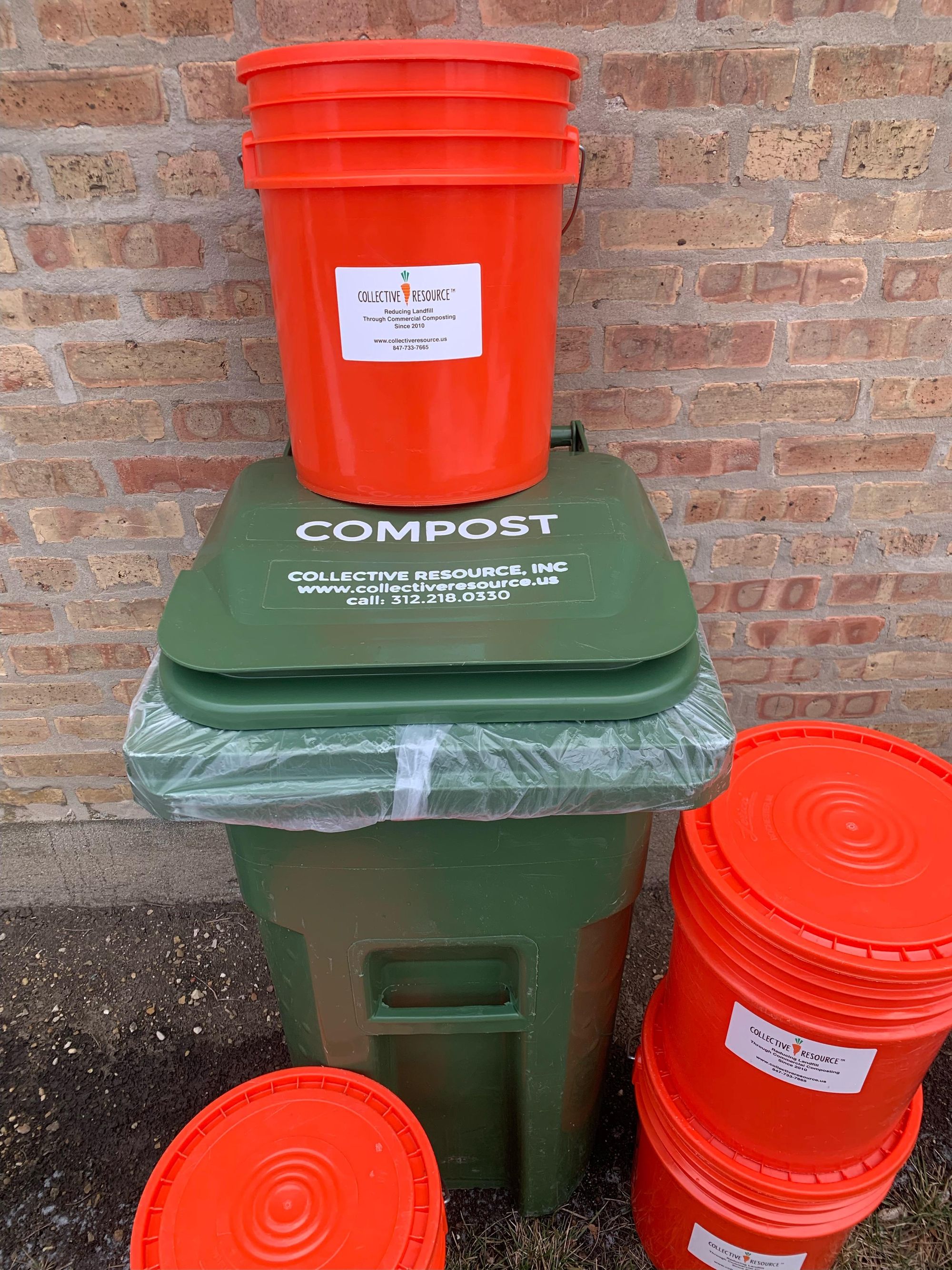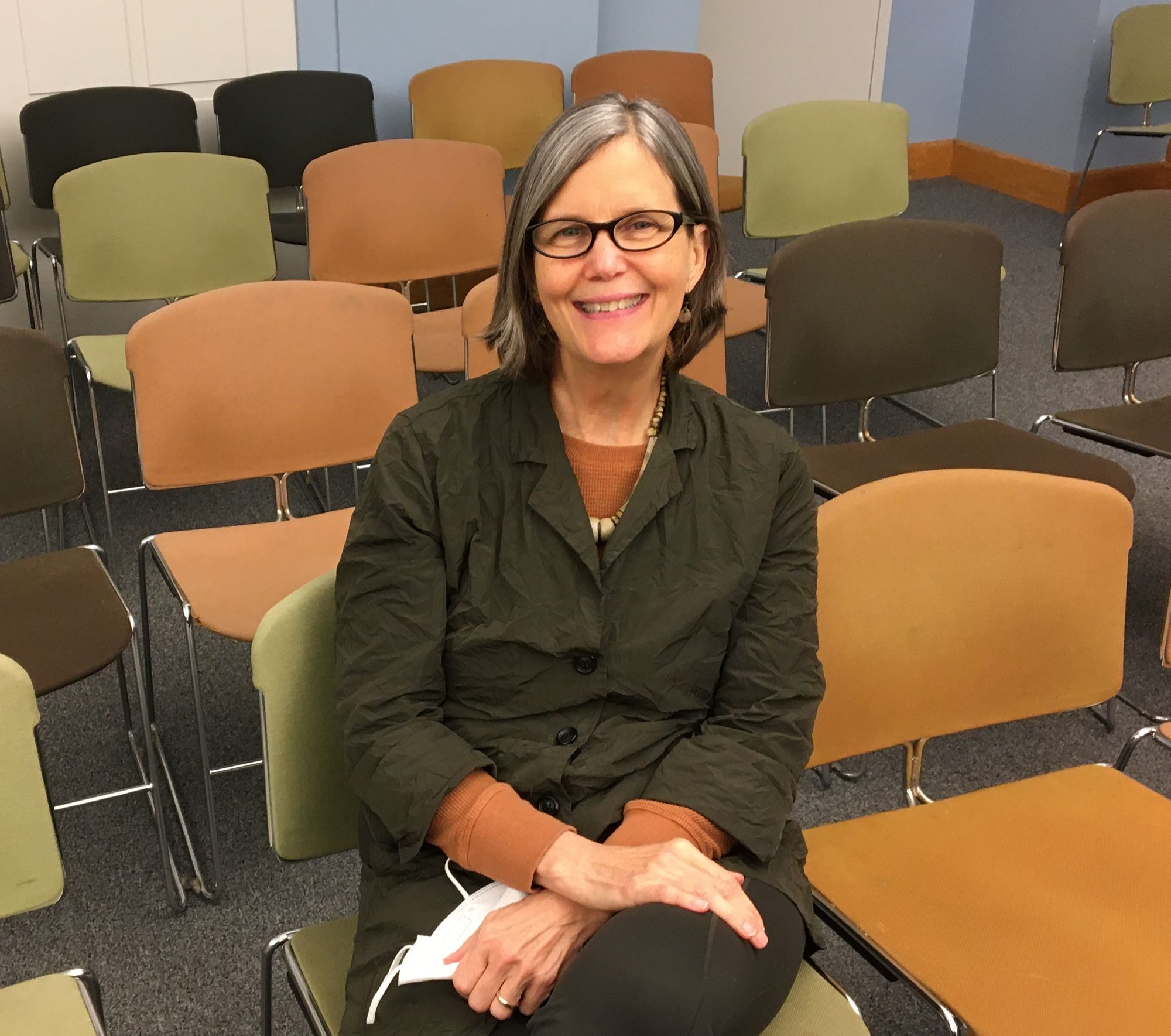Interested in starting your own entrepreneurial journey but unsure what to expect? Then read up on our interview with Erlene Howard, founder of Collective Resource Compost, located in Evanston, IL, USA.
What's your business, and who are your customers?
We help people to mitigate climate change by providing an easy method for diverting their food scraps from landfills, where they create methane. We do this through a container-swap composting service. We make composting easy by giving a clean container every time, either a 5-gallon bucket or a 32-gallon tote. Hence, all our customers have to do is put their compostable waste in our container and put it out on the swap-out day. Our customers live or work in Chicago or Chicagoland and are committed to a sustainable lifestyle. We work with large catering companies, schools, and any business, institution, or person who wants to divert their food scraps. We have been woman-owned and in business since 2010 and are looking into becoming a co-op so that our customers can be owners.

Tell us about yourself
I feel like I manifested this job for myself. I was looking for work with purpose, a way to transfer my skillset into making a difference somehow somewhere. I wasn’t exactly planning to enter the waste hauling industry. But this idea I had for a composting service meant that I could be my own boss, set my own hours, and create a workstation that worked for me. I have a genetic eye disease that had progressed to a point at which I was not able to drive at night. This made working regular 9-5 hours tricky in the winter. The work I was doing at the time involved freelancing and driving to different clients, some not close to public transportation, and using their computers. Also, I was living in a condo and wanted a composting service. It didn’t exist in my area, so I created one!
I am motivated by feeling useful: to our customers, my employees, and our community. What I do supports the whole operation. In particular, I really like logistics, but I also make sure everyone gets paid and receives their benefits. Through our educational efforts, we’ve been able to help build a community around sustainability which builds our impact beyond just the thousands of tons we’ve been able to divert.
What's your biggest accomplishment as a business owner?
The number of tons that we’ve collectively been able to divert is ever-growing but is currently 8300+ tons. I continue to be able to offer more and more benefits to my employees, including opportunities for health insurance and retirement savings. I was really happy when my business reached its five-year milestone. That’s generally a marker that indicates it will have longevity.
What's one of the hardest things that come with being a business owner?
Ultimately being the one responsible for the welfare and livelihood of our 26 employees. Periods of fast growth have been difficult for us to navigate.
What are the top tips you'd give to anyone looking to start, run and grow a business today?
- Start small but start. What that meant for us at the beginning was using my Toyota Camry to haul food scraps and washing out buckets in the laundry room of my condo building.
- Trust your instincts but don’t hesitate to sleep on it when a decision feels hard. This can really help!
- Don’t let your ego lead you to believe that you can do it alone. Though I was hauling buckets by myself initially, I quickly enlisted my son Kevin to help. I’ve been lucky to have smart and dedicated people join me who also want to do meaningful work.
Is there anything else you'd like to share?
Small businesses also have small marketing budgets. We need more help in getting our message out. Good google reviews and shout outs on social media can do a lot for us. We need to keep all of the food scraps out of the landfill, so we need everyone to be composting. There are lots of different ways. We encourage everyone to find the way that works for them. And though we believe that small actions can collectively have a big impact, we also know that governments and corporations need to be reminded to do the right thing, so activism is also important. Examples of this can have a range too. They can be as small as filling out a waste survey from your municipality and checking a box that says, “I would like a composting option.” It could be writing to your public works director and asking that they enter into a franchise agreement with a food scrap hauler like they have with recycling and landfill haulers. Change needs to happen on statewide and federal levels as well. Support legislation that promotes food waste bans and organics recycling laws. These not only force corporations to compost their organic waste but lead to more food donation and less food waste overall.
Where can people find you and your business?
Website: https://collectiveresource.us/
Facebook: https://www.facebook.com/collectiveresource
Instagram: https://www.instagram.com/collectiveresource/
LinkedIn: https://www.linkedin.com/in/erlene-howard-8731108/
If you like what you've read here and have your own story as a solopreneur that you'd like to share, then email community@subkit.com; we'd love to feature your journey on these pages.
Feel inspired to start, run or grow your own subscription business? Check out subkit.com and learn how you can turn "one day" into day one.
